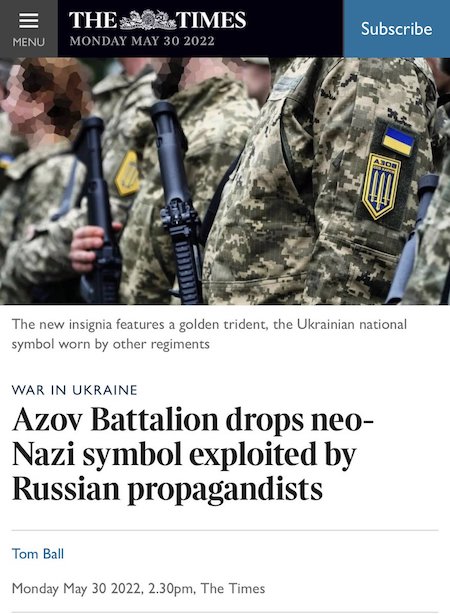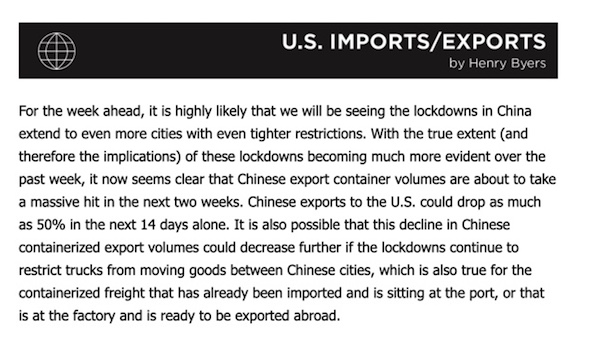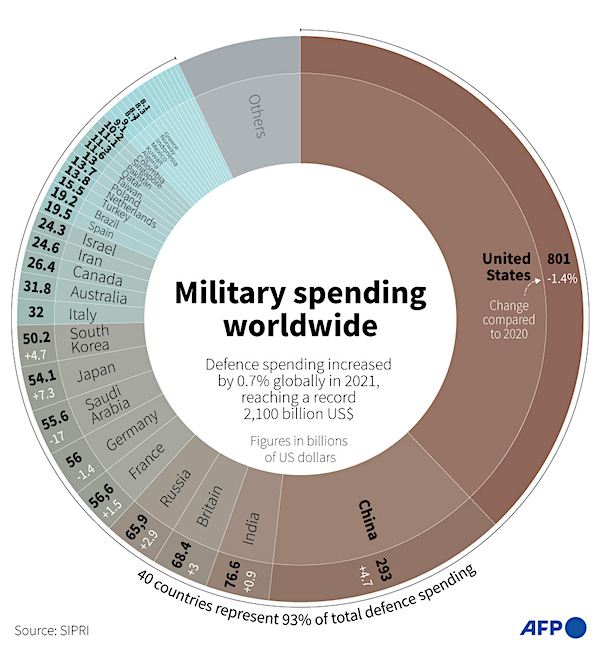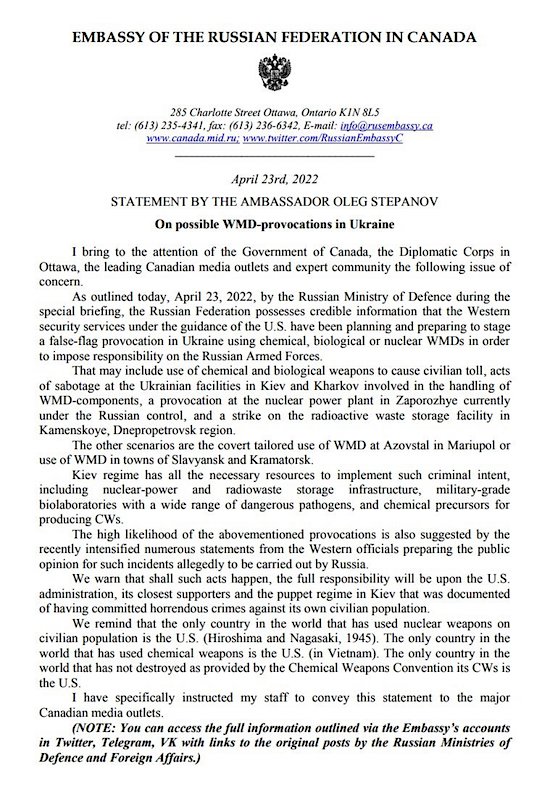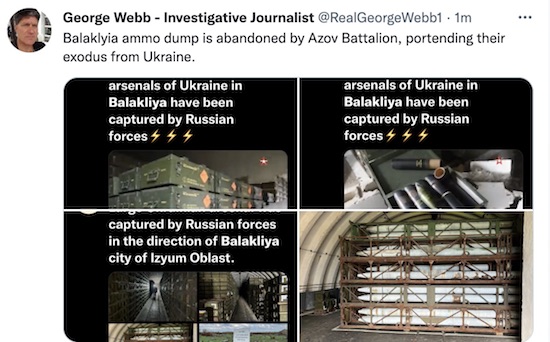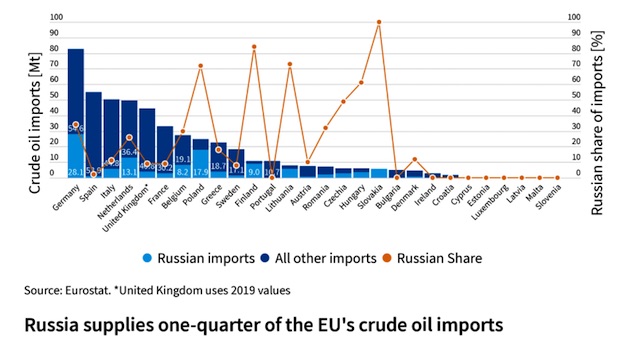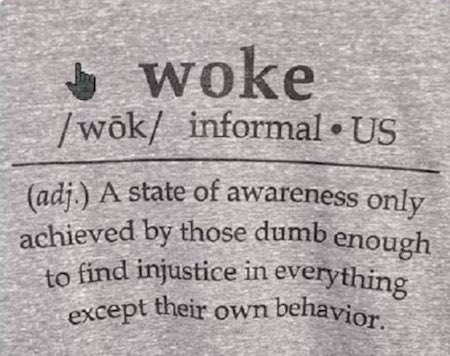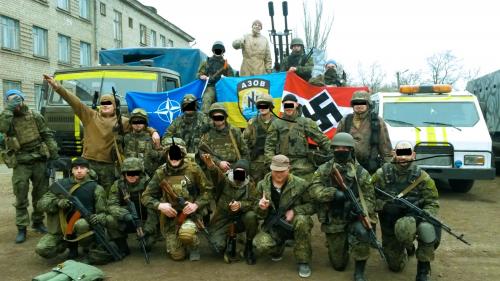
Giovanni Bellini The transfiguration c1490

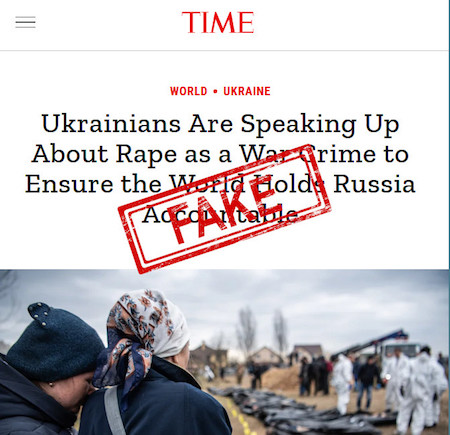

Tucker What is a Woman
"What is a woman?" Matt Walsh has been looking for an answer pic.twitter.com/ITXnVKbRTJ
— Wittgenstein (@backtolife_2022) June 2, 2022

Twitty
General Twitty, Former Deputy Commander, United States European Command (2018–2020):
"There is no way that the Ukrainians will ever destroy or defeat the Russians [and] there is no way the Ukrainians will ever have enough combat power to kick the Russians out of Ukraine as well" pic.twitter.com/j7Wo40tBx3
— Arnaud Bertrand (@RnaudBertrand) June 2, 2022


“reactogenicity”
• Dear Friends, Sorry to Announce a Genocide (Naomi Wolf)
I’ve been silent for some weeks. Forgive me. The truth is: I’ve been rendered almost speechless — or the literary equivalent of that — because recently I’ve had the unenviable task of trying to announce to the world that indeed, a genocide — or what I’ve called, clumsily but urgently, a “baby die-off” — is underway. The WarRoom/DailyClout Pfizer Documents Research Volunteers, a group of 3000 highly credentialled doctors, RNs, biostatisticians, medical fraud investigators, lab clinicians and research scientists, have been turning out report after report, as you may know, to tell the world what is in the 55,000 internal Pfizer documents which the FDA had asked a court to keep under wraps for 75 years. By court order, these documents were forcibly disclosed. And our experts are serving humanity by reading through these documents and explaining them in lay terms. You can find all of the Volunteers’ reports on DailyClout.io.
The lies revealed are stunning. The WarRoom/DailyClout Volunteers have confirmed: that Pfizer (and thus the FDA) knew by December 2020 that the MRNA vaccines did not work — that they “waned in efficacy” and presented “vaccine failure.” One side effect of getting vaccinated, as they knew by one month after the mass 2020 rollout, was “COVID.” Pfizer knew in May of 2021 that 35 minors’ hearts had been damaged a week after MRNA injection — but the FDA rolled out the EUA for teens a month later anyway, and parents did not get a press release from the US government about heart harms til August of 2021, after thousands of teens were vaccinated.
Pfizer (and thus the FDA; many of the documents say “FDA: CONFIDENTIAL” at the lower boundary) knew that, contrary to what the highly paid spokesmodels and bought-off physicians were assuring people, the MRNA, spike protein and lipid nanoparticles did not stay in the injection site in the deltoid, but rather went, within 48 hours, into the bloodstream, from there to lodge in the liver, spleen, adrenals, lymph nodes, and, if you are a woman, in the ovaries. Pfizer (and thus the FDA) knew that the Moderna vaccine had 100 mcg of MRNA, lipid nanoparticles and spike protein, which was more than three times the 30 mcg of the adult Pfizer dose; the company’s internal documents show a higher rate of adverse events with the 100 mcg dose, so they stopped experimenting with that amount internally due to its “reactogenicity” — Pfizer’s words — but no one told all of the millions of Americans who all got the first and second 100 mcg Moderna dose, and the boosters.

A 1971 photo.
• Is Monkeypox a Smokescreen for Global Health Power Grab? (CHD)
On May 24, BBC News reported the following on the monkeypox outbreak: “More than 100 cases of the virus — which causes a rash and a fever — have been confirmed in Europe, the Americas and Australia… The virus has now been detected in 16 countries outside Africa… a top EU health official has warned that some groups of people may be more at risk than others… Dr. Ammon suggested that countries should review the availability of the smallpox vaccine which is also effective against monkeypox.” Has the BBC reverted to its past reputation as a balanced reporter of news? That would seem unlikely in the present circumstances. Especially when the BBC is partially funded by the Gates Foundation and it opts to use a Getty Images photo of an unconfirmed monkeypox case that may actually be smallpox.
The BBC News piece contained a powerful image of the arm and leg of a pox-covered child. Driven by concerns that this looks very much like smallpox (check out the UK Health Security Agency images [shown also in Fig 5B] which are closely associated with the Hospital for Tropical Diseases and you’ll get a more representative view of the clinical features of human monkeypox), I was keen to dig deeper. The Getty Images caption tells us: “BONDUA, LIBERIA – UNDATED: In this 1971 Center For Disease Control handout photo, monkeypox-like lesions are shown on the arm and leg of a female child in Bondua, Liberia. The Centers for Disease Control and Prevention said June 7 the viral disease monkeypox, thought to be spread by prairie dogs, has been detected in the Americas for the first time with about 20 cases reported in Wisconsin, Illinois, and Indiana. (Photo Courtesy of the CDC/Getty Images).”
We’ve been unable to find a place called Bondua in Liberia. There is however a Bondua in Sierra Leone. Is that what the CDC means? Isn’t it a bit like saying the case was reported from London in France — leaving everyone confused about place and country? Not quite, actually, as there is a London in France, just no Bondua in Liberia. You might think I’m splitting hairs. But such details are actually critically important when they’re being communicated to a worldwide audience that’s waiting with bated breath to understand the implications of yet another infectious disease outbreak. Sierra Leone did in fact boast the highest incidence of smallpox in the world between 1967 and 1968 and we’ve unearthed some genuine red flags as to the origin of this CDC/Getty Images photo.
By 1971, it appears smallpox had disappeared from Sierra Leone. And, as an add-on, contrary to what the vaccine PR machine likes to suggest, the historical record does not provide evidence that it was mass vaccination as part of the WHO’s Smallpox Eradication Program that caused infections to decline then disappear from Sierra Leone.
McCullough monkeypox
Timeline of the Monkeypox outbreak planning exercise would make anyone suspicious. Highwire had all the sources I cited. @HighWire @delbigtree @TexasLindsay @CovidMemo @ChildrensHD @GetLoudAmerica @AnaPaulaVolei @Wallis4America @otrador pic.twitter.com/cN4j1fMYBY
— Peter McCullough, MD MPH (@P_McCulloughMD) May 31, 2022

Someone shut her up.
• CDC Director Issues Alert on Pfizer’s COVID-19 Pill (ET)
Centers for Disease Control and Prevention Director Rochelle Walensky warned that Pfizer’s COVID-19 pill Paxlovid can lead to a rebound in symptoms. “If you take Paxlovid, you might get symptoms again,” Walensky told CBS News on Tuesday. “We haven’t yet seen anybody who has returned with symptoms needing to go to the hospital. So, generally, a milder course.” Another researcher who is not affiliated with the CDC said that he has observed such a scenario. “People who experience rebound are at risk of transmitting to other people, even though they’re outside what people accept as the usual window for being able to transmit,” Dr. Michael Charness of the Veterans Administration Medical Center in Boston told CNN on Tuesday.
After a patient recovers from COVID-19, the aforementioned rebound has occurred between two and eight days later, according to the CDC. The agency, however, told CBS that the benefits of taking Paxlovid outweigh the risks of COVID-19, namely among those who are at a high risk of developing severe symptoms from the virus. About a week ago, the agency issued an alert to health care providers about the rebound, saying that patients who took Paxlovid either test positive for the virus after having tested negative or will experience COVID-19 symptoms. “A brief return of symptoms may be part of the natural history of SARS-CoV-2 infection in some persons, independent of treatment with Paxlovid and regardless of vaccination status,” the federal health agency said at the time.

The New York Times is gradually shifting the narrative.
• The War in Ukraine May Be Impossible to Stop. Blame the US (NYT)
In the Paris daily Le Figaro this month, Henri Guaino, a top adviser to Nicolas Sarkozy when he was president of France, warned that Europe’s countries, under the shortsighted leadership of the United States, were “sleepwalking” into war with Russia. Mr. Guaino was borrowing a metaphor that the historian Christopher Clark used to describe the origins of World War I. Naturally, Mr. Guaino understands that Russia is most directly to blame for the present conflict in Ukraine. It was Russia that massed its troops on the frontier last fall and winter and — having demanded from NATO a number of Ukraine-related security guarantees that NATO rejected — began the shelling and killing on Feb. 24.
But the United States has helped turn this tragic, local and ambiguous conflict into a potential world conflagration. By misunderstanding the war’s logic, Mr. Guaino argues, the West, led by the Biden administration, is giving the conflict a momentum that may be impossible to stop. He is right. In 2014 the United States backed an uprising — in its final stages a violent uprising — against the legitimately elected Ukrainian government of Viktor Yanukovych, which was pro-Russian. (The corruption of Mr. Yanukovych’s government has been much adduced by the rebellion’s defenders, but corruption is a perennial Ukrainian problem, even today.) Russia, in turn, annexed Crimea, a historically Russian-speaking part of Ukraine that since the 18th century had been home to Russia’s Black Sea Fleet.
One can argue about Russian claims to Crimea, but Russians take them seriously. Hundreds of thousands of Russian and Soviet fighters died defending the Crimean city of Sevastopol from European forces during two sieges — one during the Crimean War and one during World War II. In recent years, Russian control of Crimea has seemed to provide a stable regional arrangement: Russia’s European neighbors, at least, have let sleeping dogs lie. But the United States never accepted the arrangement. On Nov. 10, 2021, the United States and Ukraine signed a “charter on strategic partnership” that called for Ukraine to join NATO, condemned “ongoing Russian aggression” and affirmed an “unwavering commitment” to the reintegration of Crimea into Ukraine.
That charter “convinced Russia that it must attack or be attacked,” Mr. Guaino wrote. “It is the ineluctable process of 1914 in all its terrifying purity.” This is a faithful account of the war that President Vladimir Putin has claimed to be fighting. “There were constant supplies of the most modern military equipment,” Mr. Putin said at Russia’s annual Victory Parade on May 9, referring to the foreign arming of Ukraine. “The danger was growing every day.”

Meyssan has a entire library of articles on the topic here.
• The Secret Ukrainian Military Programs (Thierry Meyssan)
Throughout this series of articles, which began a month and a half before the war in Ukraine, I have been developing the idea that the Straussians, the small group of Leo Strauss followers in the US administration, were planning a confrontation against Russia and China. However, in the tenth episode of this series, I related how the Azov regiment became the paramilitary pillar of the Ukrainian Banderists by referring to the visit of Senator John McCain to it in 2016 [1]. However, the latter is not a Straussian, but was advised by Robert Kagan during his presidential election campaign in 2008, a central thinker among the Straussians [2], even though he has always cautiously denied his membership in this sect.
A video, filmed during John McCain’s visit to Ukraine in 2016, has resurfaced. It shows the senator accompanied by his colleague and friend, Senator Lindsey Graham, and Ukrainian President Petro Poroshenko. The two Americans are traveling on a Senate mission. But McCain is also the president of the IRI (International Republican Institute), the Republican branch of the NED (National Endowment for Democracy). It is known that the IRI has conducted about 100 seminars for the leaders of Ukrainian political parties classified as right-wing, including for the Banderists. The senators are addressing officers of the Azov regiment, the main Banderist paramilitary formation. This should come as no surprise. John McCain has always maintained that the United States should rely on the enemies of its enemies, whoever they may be. Thus, he has publicly claimed responsibility for his contacts with Daesh against the Syrian Arab Republic.
In this video, Senators Lindsey Graham and John McCain assure that the United States will give all the weapons necessary for them to succeed in defeating Russia. This video, I repeat, was recorded six years before the Russian army entered Ukraine. The two senators are investing their interlocutors with a mission. They do not see them as mercenaries who are paid, but as proxies who will fight for the unipolar world to the death. Shortly afterwards, President Poroshenko, who had attended the meeting in battle dress, changed the badge of his secret service, the SBU. It is now an owl holding a sword directed against Russia with the motto “The wise will rule over the stars”. It is clear that the Ukrainian state apparatus was preparing for war against Russia on behalf of the United States.
Three years later, on September 5, 2019, the Rand Corporation organized a meeting in the US House of Representatives to explain its plan: to weaken Russia by forcing it to deploy in Kazakhstan, then in Ukraine and as far as Transnistria. I have explained at length in two previous articles that at the end of the Second World War the United States and the United Kingdom took over many Nazi leaders and Ukrainian Banderists to turn them against the USSR. They mothered these fanatics as soon as the USSR disappeared and used them against Russia. It remained to explore how they armed them.

“..in the event of a national emergency, the COG directives give unchecked executive, legislative and judicial power to the president..”
• America, Meet Your New Dictator-in-Chief (Whitehead)
America, meet your new dictator-in-chief. As the New York Times reports, “Newly disclosed documents have shed a crack of light on secret executive branch plans for apocalyptic scenarios—like the aftermath of a nuclear attack—when the president may activate wartime powers for national security emergencies.” The problem, of course, is that we have become a nation in a permanent state of emergency. Power-hungry and lawless, the government has weaponized one national crisis after another in order to expand its powers and justify all manner of government tyranny in the so-called name of national security.
The seeds of this present madness were sown almost two decades ago when George W. Bush stealthily issued two presidential directives that granted the president the power to unilaterally declare a national emergency, which is loosely defined as “any incident, regardless of location, that results in extraordinary levels of mass casualties, damage, or disruption severely affecting the U.S. population, infrastructure, environment, economy, or government functions.” Comprising the country’s Continuity of Government (COG) plan, these directives (National Security Presidential Directive 51 and Homeland Security Presidential Directive 20) provide a skeletal outline of the actions the president will take in the event of a “national emergency.”
Just what sort of actions the president will take once he declares a national emergency can barely be discerned from the barebones directives. However, one thing is clear: in the event of a national emergency, the COG directives give unchecked executive, legislative and judicial power to the president. The country would then be subjected to martial law by default, and the Constitution and the Bill of Rights would be suspended. Essentially, the president would become a dictator for life. It has happened already. As we have witnessed in recent years, that national emergency can take any form, can be manipulated for any purpose and can be used to justify any end goal—all on the say so of the president.
The emergency powers that we know about which presidents might claim during such states of emergency are vast, ranging from imposing martial law and suspending habeas corpus to shutting down all forms of communications, including implementing an internet kill switch, and restricting travel.

“There is a risk that such equipment will be placed near Russia’s borders and Ukrainians will be able to strike at Russian cities. Such a situation is unacceptable and intolerable for us..”
• Biden Aims to Fight Russia to the Last Ukrainian, Moscow Says (Celente)
Russia blasted the White House of provoking more war after President Joe Biden said that the U.S. will send advanced rocket systems to Ukraine that Moscow has called a “red line.” The Kremlin said the U.S. is adding “fuel to the fire.” “We know that the United States has been purposefully and meticulously adding fuel to the fire,” Dmitry Peskov, the Kremlin spokesman, said, ABC News reported. “The United States pursues the course towards fighting Russia to the last Ukrainian.” Joe Biden wrote an op-ed published in The New York Times late Tuesday that confirmed his decision to provide Ukrainian fighters with advanced rocket systems that can be reportedly outfitted with missiles capable of traveling about 200 miles. Kyiv stands to receive the American High Mobility Artillery Rocket System, or HIMARS, a source told the paper, in a separate article.
A senior administration official said Biden opted not to provide Ukraine with the rockets capable of traveling 200 miles. The system, as it stands now, is capable of striking targets up to 48 miles from the launch site. “Himars units carry one preloaded pod of six 227mm guided missiles (the M270 carries two pods), or one large pod loaded with an Army Tactical Missile System (ATACMS) tactical missile,” The Guardian reported. Ukrainian fighters could now, technically, line up near the border and fire into Russia. (The paper said the Biden administration was assured that these weapons will not be used to strike Russia and “the administration was comfortable with the assurances.’ But assurances go out the window when you’re surrounded.)
[..] Anatoly Antonov, a top Russian diplomat, on Saturday commented on reports that the Biden administration was considering sending these weapon systems. “There is a risk that such equipment will be placed near Russia’s borders and Ukrainians will be able to strike at Russian cities. Such a situation is unacceptable and intolerable for us,” he told a Russian news outlet, Newsweek reported. He continued, “We are calling for an end to the senseless and extremely risky pumping of weapons into the country. It is important to refrain from threats against us and claims of a military victory for Ukraine.”
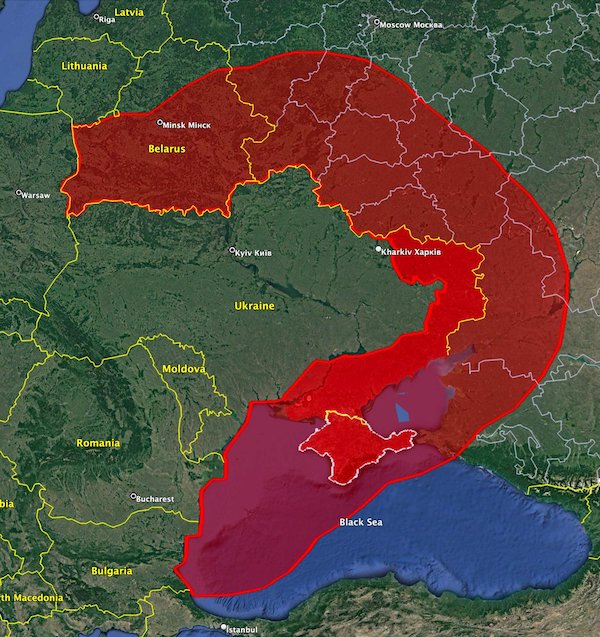
Map of Areas that the MQ-1C Gray Eagle Drone can reach when launched from Major Ukrainian Airports
USA is planning to sell Ukraine 4 MQ-1C Gray Eagle Drones which have a range of 400 Km and can fly for over 30+ hours, and can carry up to 8 Hellfire Missiles

Just lift the sanctions. Solved.
• Russia And The West Compete To Secure Safe Passage For Ukraine’s Grain (G.)
In a game of diplomatic cat and mouse, Russia and the west are coming up with similar if sometimes competing ideas for how Ukraine’s badly needed grain can be given safe passage through the Black Sea and on to the world markets. They are also competing to win the battle for world opinion if the plans collapse. Both sides are busy diplomatically across Africa and the Middle East trying to portray their adversary as the culprit for spiralling food and fertiliser prices. Russia and Ukraine export more than a quarter of the world’s wheat, while Russia is the world’s top fertiliser exporter. The World Bank’s Fertiliser Price Index rose nearly 10% in the first quarter of 2022, to an all-time high in nominal terms.
Ukraine’s backlog of 20m tonnes of grain needs to be exported quickly to avoid a further explosion of food prices, and also to preserve the next Ukrainian harvest that currently cannot be sent to already full storage facilities. That is not possible due to the Russian naval blockade of the Black Sea port of Odesa, and Ukrainian floating mines planted to block the port from Russian attack. Russia, in return for lifting the blockade, wants any sanctions on its shipping and fertiliser products lifted. At issue is whether there is a deal to be done. In what is beginning to look like the main plan, the Russian foreign minister, Sergei Lavrov, has agreed to meet the Turkish president Erdogan but not until 8 June, over proposals for Turkey to de-mine Odesa and then escort grain ships through to the Bosphorous along a naval corridor.
Erdogan spoke with Vladimir Putin about the proposal on Monday, and according to the Turkish read-out, Putin was willing to cooperate, on conditions. Turkey, through the 1936 Montreux convention, is arbiter of sea traffic in and out of the Black Sea, and justifies its refusal as a Nato member to impose sanctions on Russia by pointing to this unique role. The Turkish foreign minister, Cavusoglu, said on Tuesday that food security was the most important question: “We are focusing on this. We are planning to establish a centre in Istanbul to observe the corridor.”

Also known as: They couldn’t do it if they tried.
• Milley: Using Military to Open Ukrainian Ports Would Be ‘High Risk’ (Antiwar)
Amid growing calls for naval intervention to open up Ukrainian ports for grain exports, Chairman of the Joint Chiefs of Staff Gen. Mark Milley said such an operation would amount to a “high risk military operation.” The West is blaming Russian ships for blocking grain exports from leaving Ukrainian ports, but there are other factors, including mines laid by Ukraine. Russia said last week that it cleared mines around Mariupol and that the Azov Sea port is now open to civil vessels. This week, Retired Adm. James Stavridis, a former supreme allied commander of NATO, suggested that naval vessels under the auspice of the UN or NATO could escort convoys of grain ships out of Ukraine.
Ukrainian Foreign Minister Dmytro Kuleba suggested on Tuesday that Ukraine was pushing for a UN convoy to open its ports. “Ukraine is working on an international UN-led operation with navies of partners ensuring a safe trade route with no security risks,” he wrote on Twitter. Milley said such a plan would be high risk due to the presence of Russian ships and mines in the waters. “You can take the grain out by truck or train, or you can take it out by sea. Right now, the sea lanes are blocked by mines and the Russian navy. In order to open up those sea lanes would require a very significant military effort,” Milley said. “It would be a high-risk military operation that would require significant levels of effort.”
Macgregor
Doug Macgregor about WH sending high tech missile systems to Ukraine pic.twitter.com/dfBKegpkJq
— Wittgenstein (@backtolife_2022) June 2, 2022

She follows the game plan.
• Janet Yellen Pretends She Got It Wrong on Inflation, She Did Not (CTH)
Treasury Secretary Janet Yellen has more financial and analytical resources at her fingertips than thousand hedge funds combined. When Secretary Yellen claims today that she “got it wrong” about inflation, what she is doing is continuing the game of pretending; she’s positioning the administration as incompetent, not deliberate. The illusion of incompetence plays into the scheme of hiding the fact the administration is working through a purposeful strategy. In the game of pretending; and under the current circumstances; it is better to be seen as incompetent than recognized as working with malicious intent. This is the illusion behind Joe Biden’s usefulness.
This is also the organized pretending game within DC that too few people will accept or admit. The Treasury Secretary and Federal Reserve Chairman are not making mistakes, they are working on a specific agenda and economic plan. Federal Reserve Chairman Jerome Powell was not late to raise interest rates, he waited on purpose. He waited for the political reason of waiting until the triggered 2021 inflation spike cycled through the full calendar year. These are not monetary policy leaders making monetary policy mistakes. These are monetary policy political ideologues, carrying out a political agenda within the U.S. economy. This is part of what National Economic Council Chairman Brian Deese would call the “economic transition.”


“If you don’t get the bureau’s role right, you’re apt to get the most consequential things wrong..”
• John Durham Lost Because He Treated The FBI As A Dupe (McCarthy)
What was the role of the FBI? In the Russiagate probe, in which special counsel John Durham has been tasked with getting to the bottom of the Trump-Russia “collusion” farce, that is the key question. If you don’t get the bureau’s role right, you’re apt to get the most consequential things wrong. Durham has banked his investigation on the premise that the FBI was a victim — an innocent dupe manipulated by the wily Clinton campaign. On Tuesday, this misplaced faith led to the acquittal of Clinton lawyer Michael Sussmann. The irony abounds. A Washington, DC, jury found Sussmann not guilty of making a false statement to the bureau even though Durham’s team convincingly proved the falsity of the statement he made — namely, that in purveying derogatory information about Donald Trump, Sussmann was not representing any client, when in fact he was representing the Hillary Clinton campaign.
Moreover, although the acquittal will encourage Democrats and their legacy media allies in seeking to discredit Durham’s probe, the law enforcement shenanigans uncovered by the trial illustrate that the probe is essential. Nevertheless, the probe will come to naught, and accountability will remain a pipe dream, unless Durham gets the FBI’s role right. As I contended in “Ball of Collusion: The Plot to Rig an Election and Destroy a Presidency,” the outrage of the Trump-Russia “collusion” farce is that the law enforcement and intelligence apparatus of the United States government was put in the service of partisan politics — first to attempt to get Hillary Clinton elected president and, when that failed, to hamstring the Trump administration’s capacity to govern.
That is, what makes Russiagate a uniquely dangerous chapter in modern American history is the willful interference by powerful federal agencies in electoral politics. The real collusion was between the Clinton campaign and the Obama-era executive branch — particularly (but by no means exclusively) the FBI. Durham proceeded on a different theory. The culprits, by his lights, are the Clinton campaign and its operatives. We are to see the FBI not as colluding with the Clinton campaign, but as victimized by the Clinton campaign. The false-statement case against Sussmann is one of three indictments Durham has brought in more than three years of conducting his probe. In each one, the defendant is accused of duping the FBI, not collaborating with the FBI, in an effort to portray Trump as a Kremlin asset.
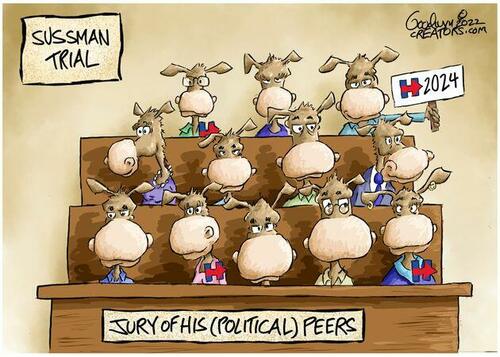






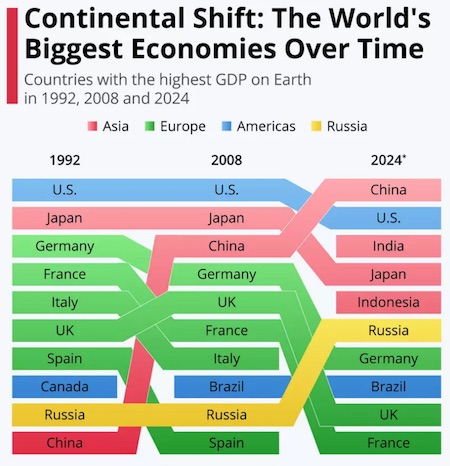



Support the Automatic Earth in virustime with Paypal, Bitcoin and Patreon.







